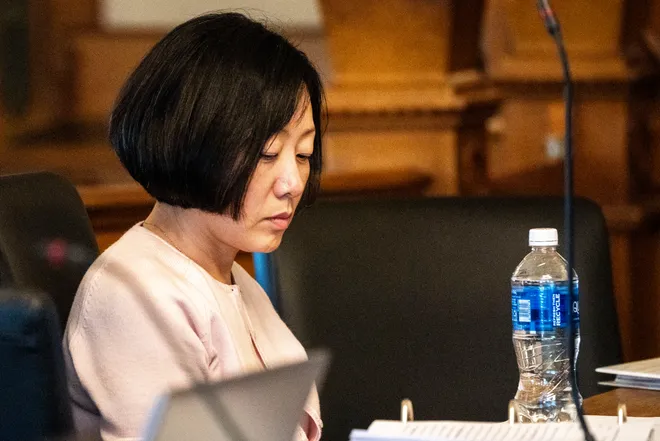Simpson approves new academic integrity policy
January 22, 2009
Several Simpson professors have noticed a significant problem in their classes: plagiarism.
In order to contain this problem, the members have proposed a revised academic policy that addresses the problem spots of this issue.
In the spring semester of 2008, a task force consisting of eight faculty members was summoned by the dean of academic affairs to review the current policies and procedures about plagiarism.
The policy was brought into effect when a student was told by a professor that the student would fail a course for plagiarizing. Instead of receiving a failing grade, the student withdrew from the course, and nothing else was discussed on the matter.
At that time not all cases of plagiarism were reported to the administration, but this case brought up a serious issue that needed to be dealt with.
Mark Gammon, assistant professor of religion and chair of the religion department, was head of the task force and said that it was time to issue a revised plagiarism policy by fall 2009.
“There were some faculty and students that seemed unclear about the policy,” Gammon said. “We wanted to convey to everyone how serious this issue really is.”
Gammon also said that Simpson will now standardize and improve new lines of communication. Records will also be documented more in-depth.
The members of the task force came to a conclusion that many students don’t know what plagiarism entails or don’t realize that copying and pasting another author’s work are illegal.
John Bolen, associate academic dean and registrar, said that the members are working to correct these misconceptions on plagiarizing.
“If we can find ways to make sure students know what plagiarizing is and how to properly document their sources, I believe we can help cut down this problem,” Bolen said.
Bolen said that in the past, consequences for plagiarism have been inconsistent.
“The policy before left it up to each faculty member to decide whether or not to report each case of plagiarism,” Bolen said. “Whereas now the new policy requires that every case of plagiarism be reported to the academic dean who will keep a file in his office on each case reported. With every case of plagiarism, we will better know what we are dealing with,” Bolen said. “If students plagiarize more than once, we will know it and know what to look for in future cases.”
According to Bolen, the risk of getting caught plagiarizing should outweigh the cost of failing a course.
“After a student gets caught plagiarizing, the student could be suspended from the college,” Bolen said.
The threat of being suspended may not resonate with some students, who may feel they can get away with it, but faculty members are becoming more acquainted with sites such as Spark Notes and Pink Monkey and are more aware of the problem.
According to Davee Matlock, visiting assistant professor of English, the problem is evident.
“In the six years I’ve been at Simpson, I’ve not gone a year without having an instance of plagiarism,” Matlock said. “The worst instance was when I had four versions of the same paper turned in [at] the exact same time.”
Rachel Bandy, assistant professor of sociology and criminal justice, also had a similar experience.
“During one semester, I caught multiple people in a class of 25 or 30 that plagiarized,” Bandy said. “I thought I was doing something wrong because I couldn’t believe so many students would plagiarize in one class.”
Though faculty members were concerned about this issue, many cases went unreported because the situation was handled privately with the student and professor.
Matlock understands that many faculty members would rather keep a situation private, but they should report it to the dean.
“When you’re a teacher and you have compassion for students, sometimes you want to protect them, but I think this policy reflects my own thinking that anybody can make a mistake once,” Matlock said. “If they correct that mistake, it shouldn’t affect the rest of their lives, but if they keep doing it, then we have a problem.”
One proposal is to develop an online tutorial and quiz that students would have to complete and pass about plagiarism.
Also, the language about the policy is planned to be clearer to students and faculty members.
According to Gammon, these proposals and steps may help diminish plagiarism on campus, but students will have to do their part as well.
“The steps that the task force proposed will not end plagiarism,” Gammon said.
“We are just putting a band-aid on the problem, not a cure.”












